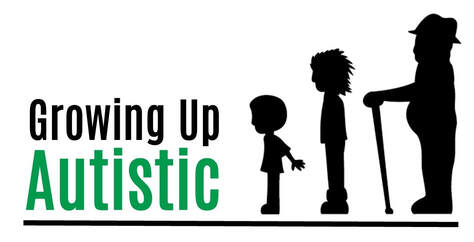 Summit Entertainment Summit Entertainment
By Trevor Pacelli
Everybody has a dream of some sort. The 2016 movie, La La Land, nominated for 14 Academy Awards, tells us about two star-crossed lovers whose contradicting dreams challenged their love for one another. It makes you wonder, what’s most important? Your loved ones or your dreams?
While some people may abandon family time to get that promotion they always wanted, others would miss out on their brother’s birthday party to keep practicing soccer for that future title as “world’s greatest soccer player.” It’s different for everybody, but we all have one specific thing that we want to accomplish before we die. Well let me tell you, autism is no exception for having dreams to push toward.
In fact, dreams for those on the spectrum can be more vividly realized, right down to what will happen in the future and when. They can even have these dreams from when they were very little. Six-Word Lessons for Dads with Autistic Kids, Lesson #49: What Were Your Strongest School Subjects? My dreams have changed over time as I got older, as I progressed onto newer interests. I had a dream of creating my own generation of my own Pokémon and getting it made into a real game. I had a dream of joining Pixar, neither of which became reality, as you could probably tell. Right now, my dream is something I never had when I was a kid: where I run my own corporation of fellow critics who help me in analyzing movies based on the criteria I set here. It would turn into my own version of the Oscars, where I make sure every film of the year gets watched by at least one representative under my wing, and at the end of the year, set our own decision on the Best Picture of the year. This would be a more organized, better focused approach to criticism from other critics circle awards that’s intent on awarding art that helps our humanity. Yes, I know, it’s a big dream to have, and it would take a lot of work to get there, but I’m up to the challenge. Then there are others on the autism spectrum who may have their plans for the future set up for years. I once met a high school sophomore with autism who was already working on a script for his senior project in animation. Wow! But alas, like anybody else following dreams, life gets in the way. A car wreck could cause loss of mobility in limbs, your mode of speech could one day be gone, you could get arrested (hopefully for a crime you did not commit), or you could simply lose interest in your one dream. One thing that you may be wondering is, “if dreams rarely ever get met, why bother having them at all?” Six-Word Lessons on Female Asperger Syndrome, Lesson #84: If at First You Don’t Succeed… Dreams are not always a bad thing to have. There are both benefits and drawbacks to them. If somebody had autism and set up a specific dream and how they would accomplish it, then that proves that they are serious about what to do with their future and will take serious action. They have to be careful though not to get so locked on that one potential future that they cancel out other possible outcomes. They need to understand that they don’t know what the future holds, so they have to consider everything that could go wrong in achievement of that dream. Without spoiling anything, La La Land discusses that same struggle, when you want to do one thing, and that is the one thing in life you want to do, but the outcome means your dream may never be met. It doesn’t mean don’t dream. It just means to be realistic about your dreams. If you want to win at American Idol someday, don’t say it’s impossible. But it turns out you instead have to leave your audition to comfort your sick sister at the hospital, remember where the priority should be. We’re all capable of doing great, but keep in mind that the way we become great rarely turns out in the way we expect.
3 Takeaways:
0 Comments
Leave a Reply. |
Inspiration for Life with AutismThis blog has a variety of articles about people living life with autism, and topics and ideas that can help in the journey. Guest bloggers are welcome. Inspired by Trevor, a young adult film critic, photographer and college graduate on the autism spectrum. Categories
All
Archives
July 2024
|
Proudly powered by Weebly

 RSS Feed
RSS Feed